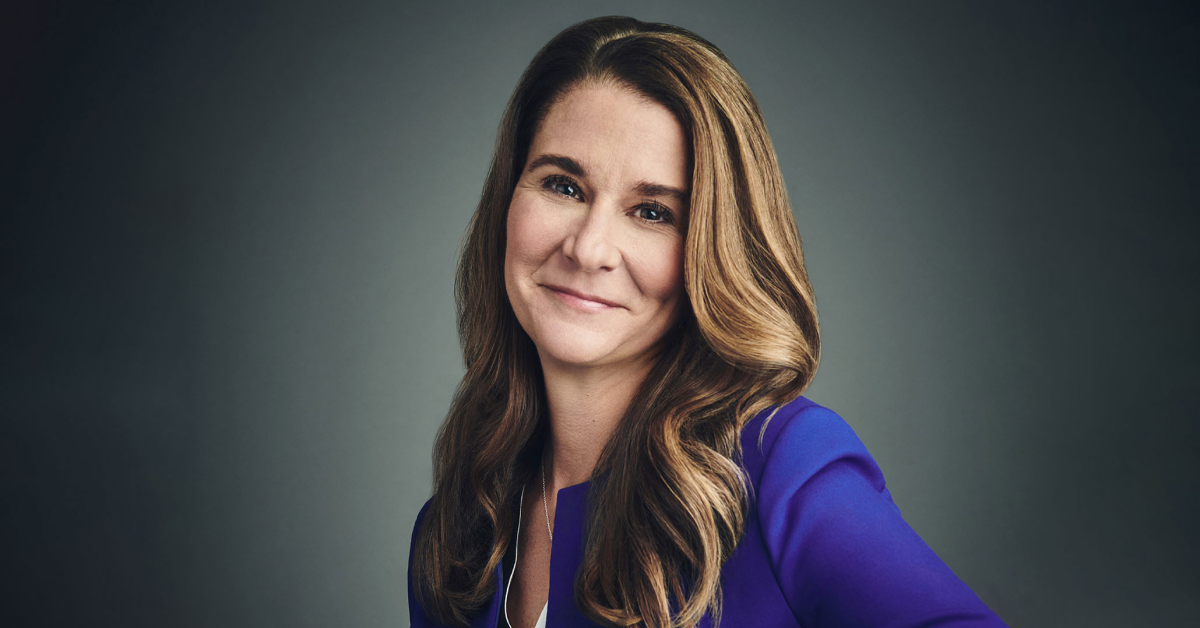As one of the most impactful women in philanthropy, Melinda French Gates knows that to whom much is given, much is expected. “I never expected that I would end up in this unique situation, this very privileged situation that I’m in, of having resources at my disposal to give back,” she says in an exclusive conversation with Chief Members.
That’s why in 2000, she co-founded the Bill and Melinda Gates Foundation, an organization that has since committed over $70 billion to partners working to fight poverty, disease, and inequity around the world. And in 2015, she founded Pivotal Ventures, an investment and incubation firm that focuses on accelerating the pace of social progress specifically for women and people of color in the United States.
“We're all philanthropists. We all have something to give. So whether that's your time that you want to give back, whether that's using your voice, whether that's using your expertise, or whether that's using your money,” the bestselling author of The Moment of Lift said. “We have to look at what we have, how we want to use it, and how we want to use our collective power to give back.”
In a conversation with Chief Member Angela Jackson, CEO of Future Forward Strategies, Melinda discusses her journey of global advocacy, how she differentiates women’s empowerment from power, and why she thinks all leaders have the power to spearhead systemic change at work.
On Women’s Empowerment Versus Power
“I've started to really shift how I talk about power in the last couple of years. I think so often we have talked about empowering women, but it's not enough to empower women if they can’t actually wield that power. For example, the global development community can make sure that women have bank accounts, which are absolutely a critical resource. But if a woman has a bank account and doesn't have control of the money and let’s say someone else in her household does — like her husband, or his brother, or her oldest son — we're not really making sure she has her full power. Power means she has full decision-making authority about how and where and when to spend that money.”
On Vulnerability in the Workplace
“I’ve found that being vulnerable myself, especially as a leader, has helped others later be vulnerable when they were going through something difficult. We spend so much time and energy at work and in our careers, and we want to be able to say what’s actually going on in our lives. We don’t expect the company to solve everything, and every day won’t bring an emotional situation, but we need to have the space and grace to be able to say, This is what’s going on in my life and this is tough. I think when we can be our whole selves and say, This is my whole life and I’m showing up and doing my best, we allow others around us to show up and try and be their best.”
On How Leaders Can Attract, Retain, and Advance Women at Work
“You can attract talent in a different way. And what do I mean by that? For instance, just take the tech sector. Instead of just looking at the top 15 or so schools that we traditionally think of as graduating good computer scientists, you should look way beyond that. There are lots of talented graduates from community colleges and other institutions with computer science degrees. You can also blind your resumes so people don't know whether it's a woman or a man or a person of color, or even the institution they are coming from.
“To actually retain that talent, you need to create a workplace compatible with life outside the office. For example, you can offer gender-neutral paid family leave to your employees, and encourage leadership — especially male executives — to lead by example and take the full benefit… You also need to make sure there’s transparency, including who's at which job level, and what pay looks like across race and across gender. You can bake this practice into your managers’ performance reviews to make absolutely sure that transparency is part of their goals.
On Deciding What to Prioritize When Everything Feels Urgent
“I always try to go back to what are the core things that I think I can do that will make a difference — either as an individual, or on behalf of an organization like the Gates Foundation? I also urge everyone to keep your values at the center of everything you do. What values or issues are most important to you? Build concentric circles around those values and look for like-minded partners in those areas.”
Have you listened to the Chief podcast? Tune into "The New Rules of Business" as Chief Co-Founders Carolyn Childers and Lindsay Kaplan unpack today's most challenging leadership questions. Be sure to leave a review and follow wherever you get your podcasts. New episodes drop every Tuesday.

